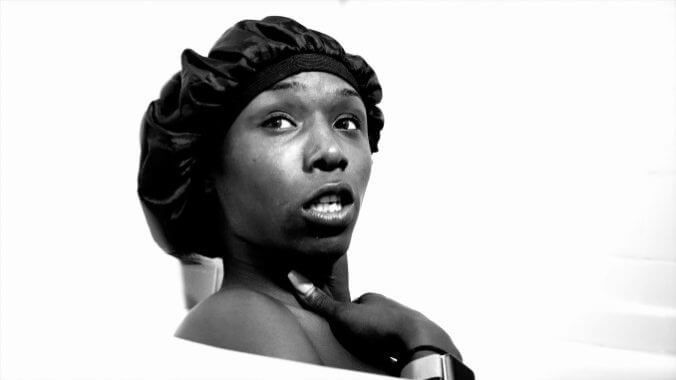Black Trans Sex Workers Run the Show in the Raucous, Riveting Kokomo City

One of the most exciting non-fiction entries to this year’s Sundance is a radical, on-the-ground pulpit from which four Black trans sex workers talk their shit. Putting transphobia within and without Black culture on blast, Kokomo City raises a curtain to reveal four stars: Daniella Carter, Dominique Silver, Liyah Mitchell and Koko Da Doll. Actually, make that five stars. Filmmaker D. Smith, a trans musician making her feature debut, keeps the rollicking conversations and righteously indignant monologues barreling along in beautiful black-and-white as we laugh, cry and commiserate with women whose experiences and insights are only outweighed by their personalities.
From the opening anecdote, about a client setting a massive pistol on the bed as he receives head, you understand that these escorts are braver than the troops. Laughing off nightmares like that, running through lists of friends that have been killed by the same men paying them, their resilience forms the sobering foundation of an overwhelmingly entertaining experience. But of course, queer storytellers have always been able to—had to—turn tragedy into exuberant art.
Smith refuses to undersell this seriousness while her aesthetic refuses to bury her subjects’ pop under their oppression: If Kokomo City lacks anything, it’s certainly not pizzazz. The soundtrack, some of which was provided by Smith, offers up lyrical laughs, as do the score’s sudden shifts (dopey cartoon tunes play when a worker recounts what it’s like to be approached by a stereotypically macho would-be client) and the on-screen subtitles that chronicle its fast-talking, no-holds-barred interviewees. Carter (the undeniable breakout of the bunch, exuding charisma and eloquent thoughtfulness) compares trans women to broken-down cars that still rev like hot rods—under attack but, defiantly, all the more extravagant for it. Kokomo City follows suit: It’s got a handmade underdog feel, loose and close and raw, but every DIY frame is fierce.
Kokomo City vibrates with that energy in part because Smith did…pretty much everything. In addition to directing and contributing to the soundtrack, she also shot, edited and produced the doc. With that level of auteurism comes plenty of personality and a tight tempo. Aside from magnetic subjects that would give Portrait of Jason a run for its money, there’s a kineticism of shape and setting—hopping between New York and Georgia, between apartment couches and shadowy cars, between homes filled with love and those where the loneliness reverberates, between reenacting blowjobs and blowing smoke rings—that churns your body as the political, racial, queer theories put forth by the women dance in your mind. A particular metaphor about eating in a Benihana is so hilariously weird and perfectly savvy—about the kinds of women who go out to eat, and how their success and oppression are equalized down to a dollar figure at the hibachi grill—that it alone is worth the documentary’s brief 73 minutes.
-

-

-

-

-

-

-

-

-

-

-

-

-

-

-

-

-

-

-

-

-

-

-

-

-

-

-

-

-

-

-

-

-

-

-

-

-

-

-

-








































